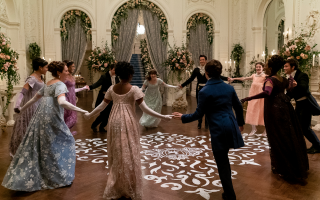Limited takeaways for RAF as Russia's air superiority yet to take off two years into Ukraine war
Russia's vast air force was supposed to crush Ukraine in a matter of days.
But that air superiority never came, thanks in large part to Western air defence systems.
Forces News has spoken to a former deputy commander of RAF Air Command to see whether there are any lessons the Royal Air Force can draw from the conflict two years on.
A golden rule of modern warfare is to achieve air superiority first, then let the ground conflict begin.
Except in Ukraine. Neither side has truly managed it, with Russia's air force being kept at bay by the threat of Western military tech.
"I don't think the West has seen anything that will scare them, that's for sure," Air Marshal (Ret'd) Greg Bagwell told Forces News.
Biggest surprise
AM Bagwell flew the Tornado and the F-18 before going on to become a senior RAF commander.
He says one of the biggest surprises has been the inability of Russia's much-feared S-300 and 400 air defence systems to counter the Ukrainian missiles.
"When a relatively modern Western piece of kit gets fielded by Ukraine, it is clearly overmatching that of Russia.
"Simple things, like some of the cruise missiles... that missile has been penetrating what we thought was pretty sophisticated air defence systems that should have been able to cope with it.
"And it hasn't, and therefore Ukraine has been relatively able to strike at will.
"That has probably been the biggest surprise that maybe the Russian air defence systems aren't as good as they were made out to be."
Giving away Russia's secrets
Unlike the ground war, or the maritime domain, the air war over Ukraine has not brought a huge number of key lessons, says the Air Marshal, at least ones the RAF would like to talk about.
"There's two files on the desk of the Chief of the Air Staff, there's the unclassified lessons learned file which we all get to see and there's the classified lessons learned. I can guarantee the classified lessons learned will be a lot fatter," AM Bagwell said.
He added: "When you are fighting in a conflict like this, there is no hiding place. Russia will be literally giving away almost all of its secrets.
"And we will see exactly how it operates, exactly what it does and what it doesn't do.
"And that is extremely useful and it allows you to shape and tweak what you are doing."
He added: "The good news is, there's not a fundamental shift in thinking here. This is not a 'core blimey' moment, where you go 'holy cow, we've been doing the wrong thing for 20 years' - I don't think that is true.
"The airpower domain is now seeing what we know to be something we are trained and equipped for and now are increasingly confident can operate within and win in."
Future Air Force
While the RAF is not gaining huge tactical lessons from the Ukraine war right now, AM Bagwell does believe it will have an impact down the line, in things like the Tempest programme, the RAF's sixth-generation fighter which is due to replace the Typhoon from 2035, and the development of new autonomous platforms for the Royal Air Force.
"It's right to look at how we can deliver mass, for less, because I think we do need to think through how do you saturate the defence.
"If you only have four aeroplanes, how can you make it look like 12? If you can only deliver six weapons, how can I now deliver 16 weapons?
"There is a mass calculation in there somewhere that drones might be able to help rebalance."
He added: "They (drones) might be able to provide situational awareness that you can't provide with a large manned platform because that's too vulnerable.
"There is lots to do here. I don't think any of us truly know what that future Air Force will look like in true terms.
"What Russia and Ukraine are beginning to help us think through is refine that thinking. We will be able to now, perhaps, put a little bit more empirical evidence into the design of that future force".
When the war in Ukraine began it was thought Russian jets would gain air superiority in a matter of days.
Two years on they still do not have it. Thanks to the help of Western air defence systems Ukraine has managed to achieve air denial – but it depends on that military aid continuing.
While the RAF may have fewer big takeaways from Ukraine than the British Army and Royal Navy, it is still learning, even if most of it is classified.






